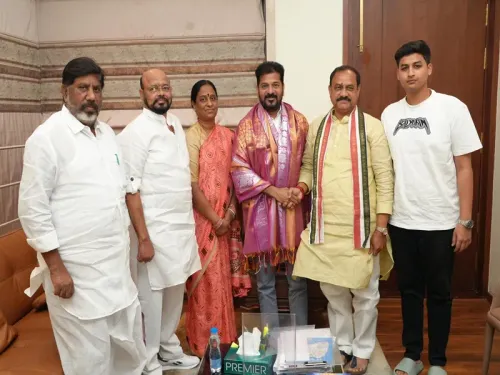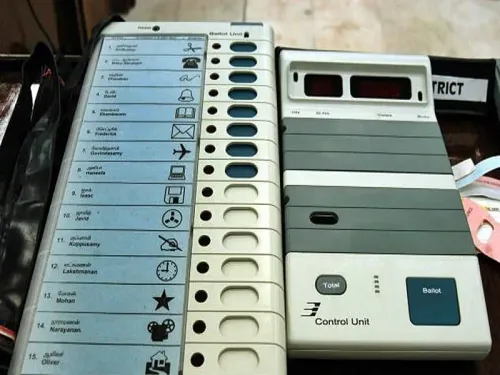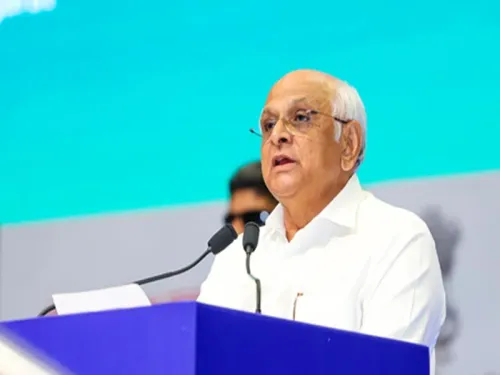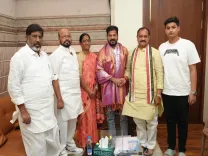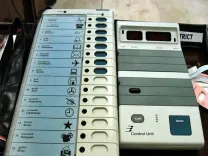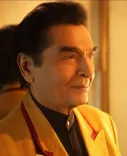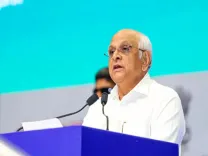Is Permission Needed for Offering Namaz in Public Places? K'taka Minister Priyank Kharge Explains
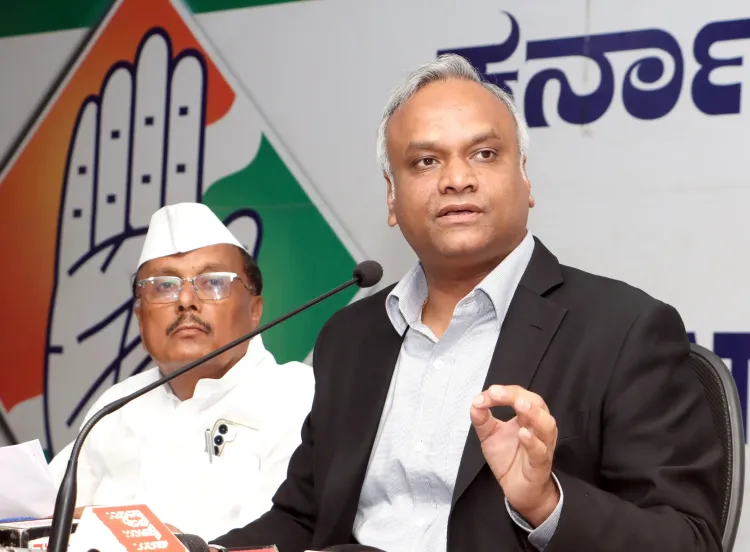
Synopsis
Key Takeaways
- Permission is mandatory for conducting prayers in public spaces.
- All organizations must comply with legal requirements.
- The law applies equally to all, ensuring fairness.
- Public safety and order are paramount.
- Engagement in public events requires transparency from organizations.
Bengaluru, Oct 20 (NationPress) Karnataka's Minister for RDPR, IT and BT, Priyank Kharge has emphasized that approval is necessary for conducting namaz (prayers) in public areas. He affirmed that regardless of who is organizing events in public spaces, permission is essential.
While addressing journalists in Bengaluru on Monday, Kharge responded to inquiries by stating, “In our directive, no organization, religion, or caste has been specified. Everyone, including myself and you (media), must secure permission. This rule applies universally, whether it pertains to former minister K.N. Rajanna or BJP State President B.Y. Vijayendra,” he articulated.
It is noteworthy that former minister Rajanna had previously questioned his own government’s order that mandates all organizations to obtain prior approval from authorities, pondering if anyone challenges permission when prayers are performed in public venues. He suggested that if laws lack practicality, they will merely exist on paper.
Kharge further elaborated, “Our order mandates private organizations to acquire permission for events in public domains, without naming any specific entity. Why is there confusion surrounding this? For the first time in our nation’s history, we are encountering an unusual scenario where leaders openly declare their intention to ignore the law and are conducting ‘Pathsanchalan’ (foot march).”
“The RSS is failing to provide documentation to establish their registration as a legitimate organization. When questioned on accountability, they remain silent. What does this imply? They insist on conducting events despite refusals, with one member even issuing threats. Not a single leader has denounced such behavior,” he remarked.
“During an incident when a shoe was thrown at the Chief Justice of India (CJI), no BJP leader condemned the act. When one of their members asserted that ‘Desh Bhakts might invade our homes,’ there was no objection from BJP officials. I feel pity for the BJP. They first nominate individuals with multiple criminal cases and then allow them to make threatening statements. We reject this. While our ideologies may differ, no one should have the right to threaten a family,” Priyank asserted.
Regarding the recent application submitted by the RSS for a foot march in Chittapur town, within his Assembly constituency, he stated: “They are free to hold the foot march in Chittapur. This is not their first such event. The court has mandated that they submit an application, and decisions will be made based on the circumstances. Is requesting details about their programs unreasonable?”
“This regulation is applicable to all. I am not singling anyone out. When they applied for a foot march on October 19, three additional applications were also denied. They sought permission to carry sticks—what should the government’s response be in such situations?” he questioned.
“The Central government has enacted a law permitting government employees to engage in RSS activities. However, as a state government, we disagree. The service rules of the Centre and state differ,” he clarified.
In response to Union Minister H.D. Kumaraswamy’s assertion that RSS activities have been conducted for centuries without incident, Kharge countered, “Kumaraswamy himself penned an article in a prominent Kannada publication labeling the RSS as poison. Let JD(S) leaders review it first. Former Prime Minister Deve Gowda has called for a ban on the RSS and ABVP. What has changed now? JD(S) does not uphold secular values.”
“Let BJP leaders first send their children to safeguard cows and enroll them in RSS branches before making such grand claims,” he challenged.
“They have made remarks about my wife’s health, my brother, and even my father. Yet, they are unwilling to answer a straightforward question—why don’t they provide proof of registration? Prime Minister Narendra Modi himself has lauded the RSS as the largest NGO globally. We are merely inquiring about the organization,” he remarked.
“In my letter calling for a ban on RSS activities in public areas, I included other organizations alongside the RSS. The directive applies to all organizations equally,” he concluded.

